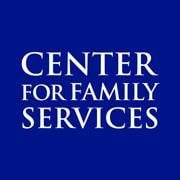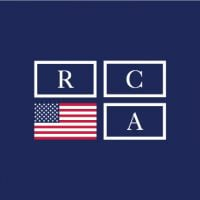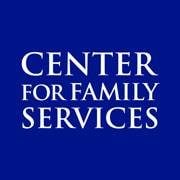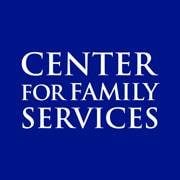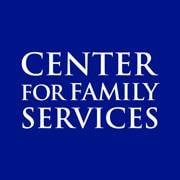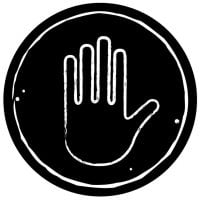Liberty Wellness
Drug Rehab Center in Berlin, New Jersey
Liberty Wellness is a behavioral health care center in Berlin, NJ that offers a comprehensive range of specialized addiction, dual diagnosis, and general mental health treatment services.
About Liberty Wellness in New Jersey
Liberty Wellness, a private rehab nestled in Berlin, New Jersey, has been dedicated to helping individuals overcome mental health challenges and substance abuse since its establishment. With a focus on providing comprehensive and personalized treatment, Liberty Wellness aims to guide clients towards lasting recovery and improved well-being.
• Certified by LegitScript, NAATP, and JCAHO, ensuring high-quality care and ethical practices
• Specializes in treating substance abuse, drug addiction, opioid addiction, and dual diagnosis
• Offers a range of programs, including detox, partial-hospitalization, outpatient, intensive outpatient, and intervention
• Provides a comprehensive approach addressing both addiction and underlying mental health issues
Liberty Wellness holds certifications from esteemed organizations such as LegitScript, NAATP, and JCAHO, demonstrating their commitment to delivering top-notch care and maintaining the highest standards of treatment. Their team of skilled professionals works diligently to create individualized treatment plans that cater to each client's unique needs and goals.
At Liberty Wellness, individuals struggling with substance abuse, drug addiction, opioid addiction, and dual diagnosis can find the support and resources they need to embark on a transformative journey. The facility offers a continuum of care, including detoxification, partial-hospitalization programs, outpatient services, intensive outpatient programs, and intervention services.
By addressing both the physical and psychological aspects of addiction, Liberty Wellness takes a holistic approach to treatment. Their dual diagnosis program recognizes the importance of treating co-occurring mental health disorders alongside substance abuse, ensuring that clients receive comprehensive care to promote long-term recovery and overall well-being.
Genders
Ages
Modality
Additional
Accreditations
NAATP

LegitScript

JCAHO
Conditions and Issues Treated
Substance Abuse Treatment is important when getting sober, as it helps addicts learn the skills they need to live a clean life. There are many different kinds of recovery treatment, including but not limited to medication-assisted therapy, behavioral therapeutic approaches, self-help groups, and counseling. Each treatment has its benefits that help addicts recover.
Counseling can help addicts learn the skills they need to live sober lives. It can be used to treat underlying mental health issues, like depression or anxiety, that could lead to relapse. Counseling can also help people find work, deal with family problems, and learn to manage living without drugs.
With so many people addicted to opioids, we need to help those who want to quit. The cycle begins when opioid addicts take opioids for a painful injury. When someone starts taking their medication differently or in excess, it means they’re addicted and at risk of overdosing.
In , detoxing from these types of treatments is the most effective way to beat this. Most facilities begin with medical assistance and then provide counseling services; rehabilitation follows after successful treatment.
Levels of Care Offered
This center offers a variety of custom treatment tailored to individual recovery. Currently available are Detox, Intensive Outpatient, Intervention, Outpatient, Partial-Hospitalization, with additional therapies available as listed below.
Detox is an integral part of recovery and often very hard. Detoxification is the process of letting the body remove the drugs in it. It addresses the physical aspect of addiction. Detox from drugs can be unsafe as the patient undergoes withdrawal symptoms that range from headaches, vomiting, body aches to seizures and cardiac arrests. The main purpose of detox is to keep the drug users comfortable as the drugs leave their system.
Quitting cold turkey is not recommended and can lead to many issues. Detox is best done under medical supervision so that a team of experts can monitor the side effects and complications. Detox, alone, does not guarantee sobriety as the underlying psychological issues are not addressed.
An intensive outpatient program (IOP) is effective for drug rehab, but it can take six months to several years to complete. It’s the most popular type of drug rehab program in the United States. One example of a successful IOP success story is actor and comedian Chris Rock, sober since 1990.
An IOP allows participants to spend nights at home while attending meetings throughout the day. It’s a good way for drug addicts to make a recovery plan in an outpatient setting while still supporting their loved ones.
Alcohol or drug addiction, or co-occurring disorders, are treated in an outpatient program. The patient must attend therapy and other programs at the facility but can return home each night.
Outpatient treatment allows recovering addicts to live at home while receiving addiction treatment. Outpatients can attend group sessions for a few hours per week. Outpatients may also continue to work full time and study/attend school without interruption if they choose.
A popular way of getting drug treatment is through a Partial Hospitalization Program. These programs are short and intensive, allowing for more freedom in family visits. Patients can check in with the program anywhere from 18 to 30 hours per week but only sleep at home at night. The program may last anywhere from one to six months.
Intervention services are often the final safety net for individuals struggling with addiction. The process of an intervention starts when family or friends get together to talk about how they think their loved one’s life has been impacted because of addictive behaviors and why treatment is needed for them to move forward into a healthy future. The discussion includes information on what different types of treatments will do, just in case your loved ones agree that this might be necessary at some point during the conversation.
Therapies & Programs
Different people react differently to various treatment options. Some drug rehabilitation centers offer individualized treatment that caters to the specific needs of a drug addict. The best treatment option varies on an individual depending on the type of drug abused, life history, medical condition of the person, social circumstances, and the environment they live in now.
When a person enters drug rehab, they usually have anti-drug associations such as withdrawal symptoms, stress, cravings, etc. The first step of drug rehab is to detoxify the body from any residual substances in it. Drug rehabilitation centers usually employ trained medical professionals to help in this process. Usually, the initial detoxification lasts for five days, where the person is monitored under close supervision.
Family therapy sessions typically involve the addict and their family members. During these sessions, a therapist will work with everyone involved to help them understand addiction and find healthy ways of coping without substance abuse.
Some addicts might feel embarrassed about their substance abuse problems. By encouraging family members to attend these sessions, therapists can show addicts that they’re not alone in dealing with addiction. Therapists can also work with family members to help them understand addiction and learn how to offer support and encouragement to their loved one as they deal with substance abuse issues.
Attending group therapy at Liberty Wellness in , is a useful way for those seeking sobriety to realize they aren’t the only one going through it.
This is when a group of people on different recovery phases get together and talk about what they’re going through, their triggers, successes, and failures. This can include alternative types of therapies too! Group therapy may occur on an outpatient or inpatient basis with groups that have no pre-existing relationships outside the session, unlike support groups where everyone already knows each other beforehand.
Trauma therapy is a form of therapy used to help people process and understand past traumas. This can help struggling addicts, as many people turn to drugs or alcohol to mask the pain of their past. Trauma therapy can be done in several ways, such as through visualization, discussion, and writing down thoughts and feelings. The goal is to help the individual understand why they are having problems coping with certain situations and changing how they think and react to things. This is often done in tandem with other therapies to treat the underlying issues associated with addiction.
The idea behind trauma therapy is that while some people can experience traumatic events and not have lasting psychiatric symptoms, many others will. In these cases, memories get hidden from consciousness but continue to influence how the person processes and copes with things in their life. They may avoid situations that resemble what happened or become suddenly angry or irritated to a situation that reminds them of a past event. With the help of a therapist, people can go back over memories and experiences. This helps them understand why they are having problems coping with certain situations and changing how they think and react to things.
This type of cognitive-behavioral therapy helps people understand how their thoughts, behaviors, and feelings are interconnected. It can help patients with borderline personality disorder gain control over their actions and stop self-harming thoughts and attempts.
Cognitive Behavioral Therapy is a type of psychotherapy that helps people address the thoughts and behaviors that may have led to their addiction. It also helps change negative thoughts into positive ones and promotes healthy communication between addicts and those around them. CBT is an efficient treatment for individuals suffering from all sorts of addictions.
Cognitive Behavioral Therapy (CBT) focuses on the underlying thoughts and behaviors that caused the problem of addiction in the first place and may cause a relapse. Negative feelings are common in drug abuse disorders, but they can lead to co-occurring disorders if not recognized. CBT involves strategies that help to change the behavior pattern by restructuring negative thoughts into positive ones. It helps to remove these feelings, and it provides long-term benefits. Also, CBT promotes self-awareness, self-control and can be administered as a mono-therapy or as part of combination therapy.
Life Skills Services offered at Drug Treatment Centers assists addicts in their recovery by teaching them healthy coping mechanisms that will aid them in becoming sober, focussing on helping people enter into, and maintaining long-term sobriety. Drug Treatment Centers provide Life Skills Services at varying levels of intensity, specific to the needs and requirements of each patient.
Life Skills Services offered at Drug Treatment Centers assists addicts in their recovery by teaching them healthy coping mechanisms that will aid them in becoming sober, focussing on helping people enter into, and maintaining long-term sobriety. Liberty Wellness in Berlin, New Jersey provide Life Skills Services at varying levels of intensity, specific to the needs and requirements of each patient.The benefits of Life Skills Services offered at Drug Treatment Centers:
- Restores hope and empowerment — Helps addicts believe that recovery is possible and instills a new confidence in their ability to achieve a positive, drug-free future
- Enhances family involvement — Encourages families to get involved in the recovery process and supports their understanding and encouragement of healthy behavior.
- Increases patient’s compliance — Helps patients take responsibility for and ownership of their recovery and encourages continued progress
- Reduces relapse rates — Encourages long-term abstinence and emphasizes the importance of establishing sober support systems.
Good nutrition can be difficult for people recovering from addiction because they may not feel like eating while they are experiencing the physical and emotional side effects of detoxing.
Nutrition therapy can help addicts in the following ways:
- Helps individuals to understand which foods promote good health and support recovery that will assist them during detox
- Provides guidance and education about how to maintain a nutritious diet so they can stay healthy during recovery
- Improves their overall health and well-being, which can reduce the severity of substance withdrawal symptoms.
Nicotine replacement therapy is a popular method of treatment that helps individuals overcome their addiction to cigarettes by providing them with safer alternatives. Nicotine replacement options can include:
- Inhalers
- Gum
- Patches
These treatments are often used in combination with other therapies, such as cognitive behavioral therapy or motivational interviewing, to help individuals more easily transition into a smoking-free lifestyle.
Payment Options Accepted
For specific insurance or payment methods please contact us.
Is your insurance accepted?
Ask an expert, call (888) 674-0062
Additional Details
Specifics, location, and helpful extra information.
Berlin, New Jersey 8009 Phone Number+1 866-934-4037 Meta DetailsUpdated April 15, 2024
Staff Verified
Is Liberty Wellness a LegitScript Verified Treatment Facility?
According to our most recent records, we have found this center to be LegitScript verified.
Liberty Wellness Patient Reviews
There are no reviews yet. Be the first one to write one.
Berlin, New Jersey Addiction Information
The state of New Jersey is afflicted by the rising opioid overdose crisis and the increase in the number of residents engaging in illegal substance abuse. 90% of the 2,900 drug overdose deaths in New Jersey involved opioids in 2018. Over 1.1 million New Jersey residents reportedly use drugs in a given year. High prevalence of drug and alcohol abuse caused 14% of all deaths in the state between 2008 and 2017.
Drug addiction and abuse have a significant impact on the community of Berlin, NJ. The number of drug overdoses in the city has increased by nearly 60% over the past five years. The Berlin Police Department estimates that drug-related crime costs the city more than $5 million each year. Drug treatment in Berlin, NJ typically consists of individual and group therapy, 12-step programs, detoxification, medication, and holistic therapies.
Treatment in Nearby Cities
- Ridgewood, NJ (93.6 mi.)
- Woodbridge, NJ (63.8 mi.)
- Mount Laurel, NJ (11.3 mi.)
- Berkeley Heights, NJ (67.9 mi.)
- Roselle, NJ (70.2 mi.)
Centers near Liberty Wellness
The facility name, logo and brand are the property and registered trademarks of Liberty Wellness, and are being used for identification and informational purposes only. Use of these names, logos and brands shall not imply endorsement. RehabNow.org is not affiliated with or sponsored by Liberty Wellness.



